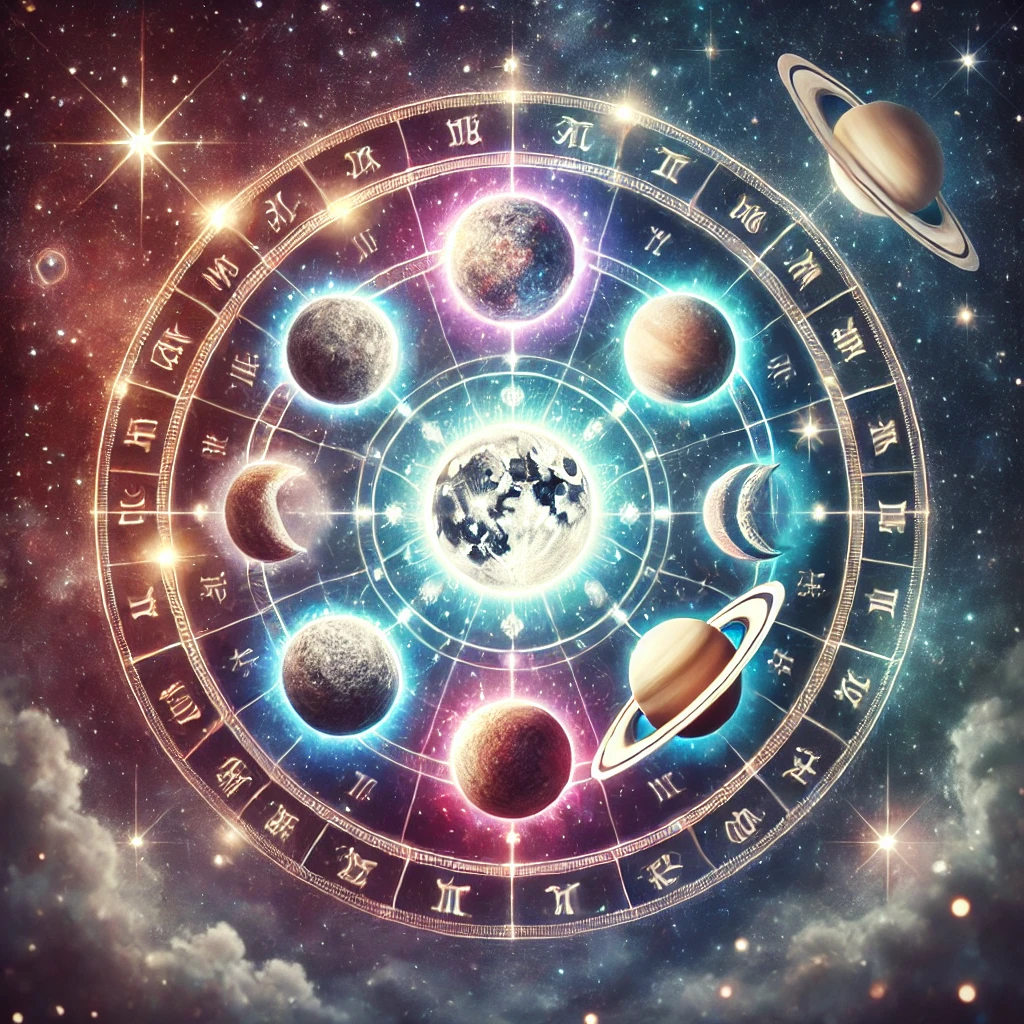Introduction
In Vedic astrology, planets are categorized as benefic, malefic, or neutral based on their natural characteristics and their effects on human life. While benefic planets bring positive influences and malefic planets tend to cause obstacles, neutral planets exhibit traits that depend on their placement, associations, and aspects. Understanding neutral planets helps astrologers make precise predictions and offer better guidance to individuals.
What Are Neutral Planets?
Neutral planets are those that do not inherently possess either completely benefic or malefic qualities. Their influence varies depending on their relationship with other planets in a specific chart. The three main neutral planets in Vedic astrology are:
- Mercury (Budh)
- Saturn (Shani)
- Moon (Chandra) in certain conditions
Each of these planets can function as benefic or malefic based on their placement, conjunctions, and aspects in the natal chart.
Mercury as a Neutral Planet
Nature of Mercury
Mercury, or Budh, is a planet of intellect, communication, logic, and business acumen. It is highly adaptable and takes on the qualities of the planets it associates with.
When Mercury Acts as a Benefic
- When placed with benefic planets such as Jupiter or Venus.
- In exaltation (Virgo) or own sign (Gemini and Virgo).
- If Mercury is well-aspected and unafflicted.
- If placed in Kendra (1st, 4th, 7th, 10th houses) or Trikona (5th and 9th houses).
- When Mercury is in a friendly sign or receiving benefic aspects.
When Mercury Acts as a Malefic
- When associated with malefic planets like Rahu, Ketu, Mars, or Saturn.
- When combust due to proximity with the Sun.
- When placed in dusthana houses (6th, 8th, or 12th).
- If Mercury is debilitated (Pisces) and afflicted.
Thus, Mercury’s impact largely depends on its planetary associations, making it a true neutral planet.
Saturn as a Neutral Planet
Nature of Saturn
Saturn, or Shani, is often considered a natural malefic, but in certain conditions, it behaves neutrally. It governs discipline, responsibility, karma, and longevity. Saturn is slow-moving and brings delays, but it rewards hard work and perseverance.
When Saturn Acts as a Benefic
- When placed in its own signs (Capricorn, Aquarius) or exalted (Libra).
- If well-positioned in a Kendra or Trikona.
- If it is a Yogakaraka planet (for Taurus and Libra ascendants).
- If receiving benefic aspects from Jupiter or Venus.
- When Saturn is in a friendly sign.
When Saturn Acts as a Malefic
- When debilitated in Aries.
- If placed in the 6th, 8th, or 12th houses without benefic aspects.
- When it is in conjunction with Mars, Rahu, or Ketu.
- If it is the lord of dusthana houses and badly placed.
Saturn, despite its slow and restrictive nature, can bring immense stability and rewards in life when favorably placed.
Moon as a Neutral Planet in Certain Conditions
Nature of Moon
The Moon, or Chandra, represents emotions, mind, and subconscious energy. While it is generally considered benefic, its status as a benefic or malefic depends on its waxing or waning phase.
When Moon Acts as a Benefic
- When it is a Waxing Moon (Shukla Paksha).
- When placed in own sign (Cancer) or exalted (Taurus).
- If it receives benefic aspects from Jupiter or Venus.
- When it is placed in strong Kendra or Trikona houses.
When Moon Acts as a Malefic
- When it is a Waning Moon (Krishna Paksha).
- If placed in its debilitation sign (Scorpio).
- When aspected by malefic planets like Saturn, Rahu, or Mars.
- If it is in a dusthana house and afflicted.
In such cases, the Moon loses its benefic nature and behaves neutrally or even malefically.
How Neutral Planets Influence a Horoscope
Neutral planets act as amplifiers of planetary energies, depending on their associations. Here are some key ways they affect a natal chart:
- Conjunctions: When neutral planets conjunct benefic planets, they absorb benefic influences. Conversely, if they conjunct malefic planets, they exhibit malefic tendencies.
- Aspects: If a neutral planet receives strong benefic aspects, it tends to act positively. If afflicted by malefics, it can bring challenges.
- House Placement: Their placement in the 1st, 5th, 9th, or 10th houses is generally favorable. In the 6th, 8th, or 12th houses, they may become problematic.
- Strength and Dignity: A neutral planet placed in its exalted or own sign will likely yield positive results, whereas if debilitated or afflicted, it may behave negatively.
Remedies for Weak or Afflicted Neutral Planets
If a neutral planet in a chart is causing issues, certain remedies can help strengthen or pacify its effects:
For Mercury:
- Reciting the Budh Beej Mantra (Om Bum Budhaya Namah).
- Wearing an Emerald gemstone (only after astrological consultation).
- Offering green leafy vegetables to cows.
For Saturn:
- Chanting the Shani Mantra (Om Sham Shanicharaya Namah).
- Donating black sesame seeds and iron items.
- Wearing a Blue Sapphire (if suitable per the chart).
For Moon:
- Reciting the Chandra Beej Mantra (Om Som Somaya Namah).
- Donating white items such as rice, milk, or silver.
- Wearing a Pearl gemstone (if astrologically recommended).
Conclusion
Neutral planets in a Vedic chart play a crucial role in shaping an individual’s destiny. Unlike strictly benefic or malefic planets, their effects vary based on their associations, house placements, and aspects. Mercury, Saturn, and in certain cases, the Moon, act as neutral planets, adapting to the energies of surrounding planetary influences. Understanding their behavior helps in making accurate predictions and applying appropriate remedies to balance their effects, ensuring harmony and success in life.
